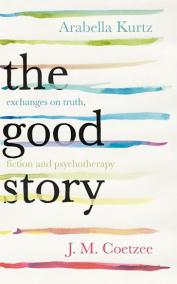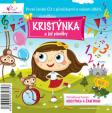The Good Story - Exchanges on Truth, Fiction and Psychotherapy
Dátum vydania: 18.06.2015
A fascinating dialogue on the human inclination to make up stories between a Nobel Prize-winning writer and a psychotherapist.
Arabella Kurtz and J. M. Coetzee consider psychotherapy and its wider social context from different perspectives, but at the heart of both their approaches is a concern with stories. Working alone, the writer is in sole charge ...
Detaily o knihe
Počet strán: 208
Rozmer: 135x216x15 mm
Hmotnosť: 236 g
Jazyk: Anglicky
EAN: 9781846558894
Rok vydania: 2015
Žáner: Svetová súčasná
Typ: Paperback
Zákazníci, ktorí si kúpili túto knihu, si kúpili aj...
O knihe
A fascinating dialogue on the human inclination to make up stories between a Nobel Prize-winning writer and a psychotherapist.
Arabella Kurtz and J. M. Coetzee consider psychotherapy and its wider social context from different perspectives, but at the heart of both their approaches is a concern with stories. Working alone, the writer is in sole charge of the story he or she tells. The therapist, on the other hand, collaborates with the patient in telling the story of their life. What kind of truth do the stories created by patient and therapist aim to uncover: objective truth or the shifting and subjective truth of memories explored and re-experienced in the safety of the therapeutic relationship?
The authors discuss both individual psychology and the psychology of the group: the school classroom, the gang, the settler nation where the brutal deeds of the ancestors have to be accommodated into a national story. Drawing on great writers like Cervantes and Dostoevsky and on psychoanalysts like Freud and Melanie Klein, they offer illuminating insights into the stories we tell of our lives.



















